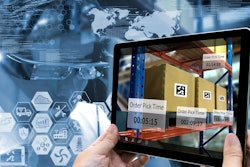
The enterprise sales cycle is typically measured in months, if not years. Products and services are often complex. Quite often, the sale involves a significant amount of dialogue around changing the “status-quo.” As with most enterprise offerings, there are multiple stakeholders and decision makers, each with their own concerns about the impact of change.
Expert guidance at every step
To make sure everyone understands the value of change and is comfortable with it, it’s best to bring in many people outside of the sales team at different points during the cycle. These include internal subject matter experts and company leaders who can speak directly to their peers in the prospect organization.
Early on in the sales process, bring in someone from your operations or solutions consulting team to help dig deeply into the prospect's current vendor payment setup. It helps to learn where the prospect is at, where they’d like to end up and how your solution can take them there.
As people start to think about how their process is going to change, bring in people from implementation, supplier enablement and/or operations. This helps to better explain what the impact will be to their suppliers and what implementation will look like for their users. Later in the process, bring in customer success and tech support people to talk about what they can expect after they go live.
Effective but not efficient
According to research by McKinsey, more than three-quarters of buyers say they now prefer digital self-serve and remote human engagement over face-to-face interactions, even in industries where field sales have long been the norm.
There’s value in meeting folks face to face, depending on the situation. In-person meetings are especially important for big deals where you need to establish a high comfort level. However, face-to-face sales meetings are a very time consuming, expensive way to sell, not to mention that some of the people you want to have there are going to have to dial in remotely anyhow.
Challenging sales
Those in the sales practice are at least familiar with The Challenger Sale. In a nutshell, it’s about understanding the customer’s problems, challenging the current way of thinking and articulating things that they haven't even thought about. Maybe it’s time to apply those principles to yourselves.
For example, look at how cars are being sold now. In the old days, you’d have to go to the car lot, kick the tires, fill out paperwork and sit for hours while the salesperson went to the back room and to talk to their managers. Now you can pick out a car online and have it delivered to your home for a test drive.
Better remote selling
It’s time to double down on remote sales and improve processes. You can sell pretty effectively using videoconferencing technology, and work with marketing to help brand online presentation materials and backdrops and level up sound and lighting.
Scheduling is the hardest part of team selling, since there can be as many as 10-15 people that need to be on the call, but that was hard with in-person selling too. Use calendar software to help or hire someone that’s dedicated to helping set up these meetings for the whole sales team. Make better use of expert and executive time by establishing regular office hours where multiple sales people can bring their prospects to ask questions. Do more frequent live demos and take questions from the audience.
A team sport
Enterprise sales is a team sport. People buy from you first. Then they buy from your company and your product, more or less in that order. Personal relationships are primary, regardless of whether you’re remote or in-person.
There's more of an opportunity to make these kinds of connections and build confidence and trust remotely. Partially because we already are succeeding at this, and also because remote sales are less of an ask on the prospects’ time.
Virtual sales are efficient for salespeople too, as they can service more customers faster, which helps accelerate the transition to automated vendor payments.













